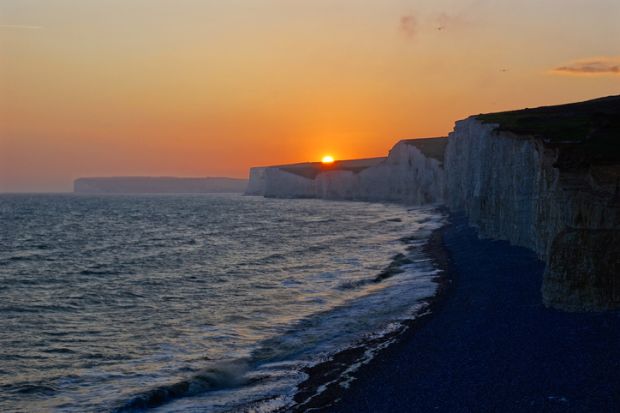The prospect of a no-deal Brexit is the “biggest threat” to hopes of the UK joining the European Union’s next research programme, with two parties “embittered” by wider acrimony unlikely to reach agreement on research, observers have warned.
The Westminster government’s Internal Market Bill has sparked a rapid decline in UK-EU relations, with potential knock-on damage to the chances of reaching agreement for the UK to associate to Horizon Europe, the bloc’s next research programme, starting in January.
Hopes for association were already in jeopardy because of the EU’s plan to make the UK pay a proportion of the Horizon Europe budget based on its gross domestic product as a share of EU GDP (currently 18 per cent), but with no downward correction mechanism if the UK won a lower than expected share of funding. That could make the UK a big net contributor to the scheme, with some estimates suggesting a likely net contribution of £3.5 billion over the seven-year programme.
Failure to associate would leave UK universities urging the government to replace lost annual income of between £1 billion and £2 billion, but also excluded from key roles in EU-funded international research collaborations and unable to permanently host world-leading researchers with prestigious European Research Council grants.
Sources said that UK ministers were still keen to secure association but needed to knock down the price tag – and that there would be no clarity on association until the question of a wider UK-EU deal is settled.
Boris Johnson has set a deadline of 15 October, the date of a European Council meeting, to secure a deal with the EU.
Martin Smith, policy and advocacy manager at the Wellcome Trust, the health research funder which has long made the case for UK association, said: “The biggest threat to association at the moment is no deal.
“And that’s because association is intimately entwined with the outcome of the overarching negotiations.”
Previous non-member states to associate to EU research have all had some “wider deal” with the bloc, Mr Smith added.
“If the talks did collapse, it would be extraordinarily difficult to just try and pick up Horizon Europe association discussions and do them separately,” he continued.
“I would hesitate to say something is impossible, but it would require tremendous amounts of political will. And the fear is that won’t be there if there’s a no-deal situation and the split becomes quite bitter.”
Thomas Jørgensen, senior policy coordinator at the European University Association, said on UK association: “The fear here is more about not reaching an agreement [in wider talks] at all and having two embittered parties after the last disagreements…The [European] Commission have been very clear, and the European Parliament was unusually unequivocal in saying that if the Internal Market Bill does not change, no agreement with the UK would be ratified.”
He added: “It is a pity, since we have had reports on progress for [UK] programme participation from the last negotiation rounds.”
Dame Nancy Rothwell, the Russell Group chair and University of Manchester vice-chancellor, said it was a question of “hoping for the best and planning for the worst”.
“We all want there to be association, but not at any cost. At the moment, the cost does appear to be prohibitive,” Dame Nancy said.
“That doesn’t mean it won’t happen. But we have got to think about: what if we’re not associated? What are the alternatives for international collaboration?”
后记
Print headline: No-deal Brexit ‘biggest threat’ to UK hope of associating to EU research




